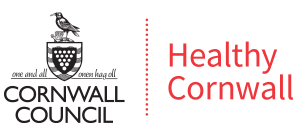Suicide Intervention Training & Skills Development
Everyone can play a role in suicide prevention.
Even a short conversation with someone can sometimes be enough to make the difference between life and death for them. Suicide Intervention Training & Skills Development provides learners with the knowledge, skills and most importantly the confidence to intervene with people at risk of suicide.
Read on for more information and to book your place:
ASIST (Applied Suicide Intervention Skills Training)
Please note: that this is a 2 day training course.
ASIST teaches verbal First Aid skills to anyone who may come into contact with a person having thoughts of suicide. It gives an introduction to the most widely used Suicide Intervention Model in the world, a model which is applicable in all situations requiring help.
After taking ASIST, you will be better able to:
Be suicide alert - identify people who have thoughts of suicide
Understand the reasons behind thoughts of suicide and the reasons for living
Recognise invitations for help
Recognise potential barriers of seeking help
Assess risk and safety - develop a plan to increase the safety of the person at risk of suicide
Offer support – recognise other important aspects of suicide prevention including life-promotion and self-care
Effectively apply a suicide intervention model
Link people with community resources
This training, usually £325 per delegate, has been fully funded by Public Health & Cornwall Council for anyone who lives or works in Cornwall & The Isles of Scilly. The only cost to the delegate is the £36.00 cost of the course resources.
Time: Day 1 - 09.00 - 16.30 / Day 2 - 09.00 - 16.30
Please be aware that due to the sensitive nature of this course, people that have had recent and/or personal experience of suicide may find some aspects upsetting. Therefore we would not recommend that you attend at this time. Please contact us to discuss any queries.
Suicide First Aid: Understanding Suicide Intervention
Please note: this is a one day training course in a physical classroom or delivered over two half days in a digital classroom (zoom).
Suicide First Aid Lite (Half Day); Suicide First Aid Young Adults (one day); Suicide First Aid Children & Young People (one day) are also available on request.
SFA: Suicide First Aid training is underpinned by three core beliefs:
Most people thinking about suicide do not want their lives to end, they want the pain to stop.
Most people thinking about suicide let others know, consciously or unconsciously.
Therefore...Suicide has to be one of the most preventable deaths
Course overview:
Teaching the theory and practice of suicide intervention skills that can be applied in any professional or personal setting, captured in an event accredited by the Royal Society of Public Health. Our trainers deliver this unique learning experience: for anyone who seeks greater understanding and confidence to intervene with people at risk of suicide.
The Suicide First Aid through Understanding Suicide Intervention (SFAUSI) course gives learners the knowledge and tools to understand that suicide is one of the most preventable deaths and some basic skills can help someone with thoughts of suicide stay safe from their thoughts and stay alive.
This training, usually £200 per delegate, has been fully funded by Public Health & Cornwall Council for anyone who lives or works in Cornwall & The Isles of Scilly. The only cost to the delegate is the £20.00 cost of the course resources. On completion of this course delegates can additionally pay £95 to complete the Royal Society of Public Health (RSPH) Level 4 Award in Suicide First Aid.
Please be aware that due to the sensitive nature of this course, people that have had recent and/or personal experience of suicide may find some aspects upsetting. Therefore we would not recommend that you attend at this time. Please contact us to discuss any queries.
ASIST vs Suicide First Aid - Which course is best for me?
Suicide First Aid Lite
The Suicide First Aid Lite course gives learners the knowledge and tools to understand that suicide is one of the most preventable deaths and some basic skills can help someone with thoughts of suicide stay safe from their thoughts and stay alive.
This training, usually £100 per delegate, has been fully funded by Public Health & Cornwall Council for anyone who lives or works in Cornwall & The Isles of Scilly. The only cost to the delegate is the £15.00 cost of the course resources.
Suicide First Aid Children & Young People
The Suicide First Aid Children & Young People course gives learners the knowledge, skills and confidence to understand that suicide is one of the most preventable deaths amongst children and young people.
Cost: £20
Suicide Awareness Information Session
A 60 minute awareness session aimed at communities so everyone can become more aware of suicide prevention opportunities.
During the session we will cover some background understanding of suicide as a public health issue, the continuum of suicide, warning signs and share a simple tool to help keep a person safe. The overall aim is to demystify the topic of suicide to enable people to feel more confident talking about it in their everyday interactions.
Cost: FREE
Please email healthy.cornwall@cornwall.gov.uk to book a session.
The Orange Button Community Scheme
The Orange Button is a badge worn by people who have taken part in Quality Assured mental health or suicide prevention training. While they’re not able to counsel people, they can help someone find relevant local services.
The Orange Button signifies that the person displaying it is:
OK to say/hear the word suicide
Can listen without judgement
Can direct people to information and support
Once you have completed at least three hours of Quality Assured mental health first aid or suicide prevention training you can become an Orange Button holder. This is to ensure you are equipped with the skills to listen and signpost people.
Find out more about the scheme, including how it works and how you can get involved
